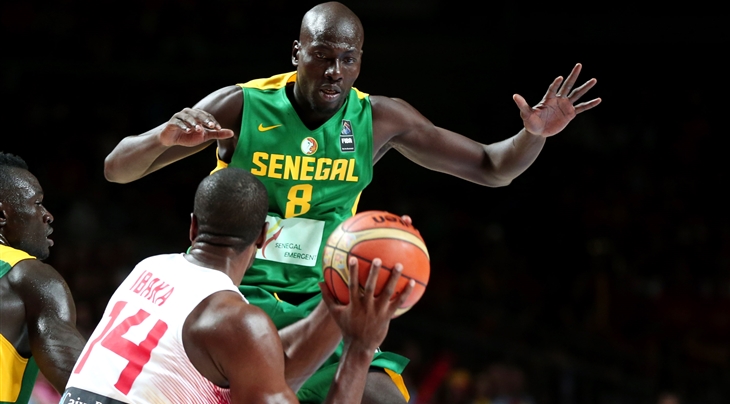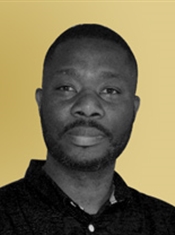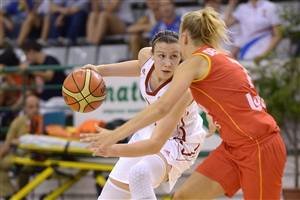
Home-based players matter
SHEFFIELD (Julio Chitunda's African Message) - Last summer, Senegal left fans stunned after beating Croatia and Puerto Rico before advancing to the Round of 16 of the 2014 FIBA Basketball World Cup in Spain, but there is another story behind Senegal's basketball.
It is the story of locally-based players who need to learn and grow and keep basketball in the country going.
It was great to see Senegal doing well in Spain as they received plaudits for the good representation of African basketball they put together on such an important stage.
2014 FIBA World Cup Capsule: Senegal makes it two in row with win over Croatia | http://t.co/Kq6PFE6yH3 #Spain2014 pic.twitter.com/5nsvj32LeA
— Sports Desk (@sportsdeskph) September 2, 2014
The experience was a short-lived one though because one side of Senegal basketball that few usually hear about is, somehow, worrying as recent events showed.
I must admit that Senegal basketball is a victim of its own success.
From the team that shone in Spain 2014, only three out of the 11 players - Thierno Niang, Mamadou Ndoye and Mohamet Diop - took part in the AfroBasket 2015 qualifier against Mali held last month in Bamako and Dakar, respectively. I am talking about 11-player squad rather than 12 because Djibril Thiam did not play a single minute at the World Cup due to an alleged disagreement with the coaching staff.
Senegal beats Croatia 77-75 and wins their second straight game at #Spain2014 @GorguiDieng scores 27 points! #SSNBA #SSBasketball
— NBA Africa (@NBA_Africa) September 1, 2014
In the two-game qualifier, Senegal showed up with a mostly local-based players squad and were beaten by Mali 115-90 in the two-game aggregate.
As a result of the two defeats, Senegal's only chance of taking part in this year's African Championship taking place in Tunisia from 19 to 30 August is if they get one of three wild cards to be handed out by FIBA Africa to complete the 16-team field.
The paradox of this situation is, if Senegal get a wildcard and bring their best professionals, they join a group of contenders to win the African Championship.
Former Senegal international Boniface Ndong served as General Manager of the Senegalese team at Spain 2014, but has not been involved with the team since. He agrees with head coach Cheikh Sarr who said in a post-game speech that the elimination does not reflect Senegal's basketball potential, even though Sarr applauded Mali.
I understand the standpoint of both Sarr and Ndong as they probably know, better than I do, the country's basketball reality.
In fairness, Senegal's elimination exposed a recurrent problem of African basketball that foreign-based players only represent their national teams on the bigger stages.
It is wrong to think that AfroBasket qualifiers are lower-division competitions that inexperienced players can take care of.
That’s the reason why home-based players matter and why they need a lot of domestic and international competition because success starts at home.
Three years ago, there was criticism in Nigeria when then-national team head coach Ayodele Bakare failed to select a single home-based player for the 2012 Olympic Qualifying Tournament in Caracas, Venezuela, even though, Ike Diogu and a group of Nigerian-Americans went on to accomplish the highest achievement in the country's basketball history by qualifying for the London Olympics.
Some in the country felt that local players deserved a chance in order to encourage others and bring interest to the national league.
Stanley Gumut was the only home-based player added to the Nigerian squad that headed to AfroBasket 2013 in Abidjan, Cote d’Ivoire where the championship favourites came in seventh.
And, ironically, the two teams that played in the Final, Angola and Egypt, lined-up with only one foreign-based player apiece. University of Minnesota forward Assem Marei played for the North Africans, while former Hawaii University Valdelicio Joaquim represented the African champions Angola.
But when I think that no Senegalese club has taken part in the African Champions Cup, FIBA Africa's only club competition, in recent years, then I feel that the home-based players are being neglected and their future could be seriously compromised if nothing is done to motivate them.
And Senegal and other national teams would continue to rely on their overseas contingent, who at some point in their careers were just as inexperienced as their countrymen.
In order to give you an insider perspective, I had a candid conversation with Ndong over the weekend.
This is what he told me: "It's logical that we would not qualify with that team because the level of that team is very, very low.
“I definitely believe Senegal should get a wild card as it would be a big attraction for African basketball - Ndong
"This elimination does not reflect Senegal basketball's potential.
"Every year, five or six players leave the country to play professional basketball overseas. We can't stop people from making a living playing basketball overseas.
"If this continues this way, we have no chance to qualify for future African Championships because [the] club competition in Senegal is very, very low.
"We don't have the necessary infrastructures to take local basketball to [the] next level.
"Solution should be a qualifier tournament played in the off-season.
"I am disappointed with the way basketball is run in the country. Before, when I took the GM, post we had discussions about functional solutions for Senegal basketball. We proposed to open a bank account in order to control our expenditure. But that's not how they operate.
"I can't afford to pay national team fees from my own pocket.
"[When it comes to organisation], Senegal basketball is not ready for change," Ndong concluded.
Some critics rightfully argue that qualifiers should not be played in the middle of the professional season in Europe or other parts of the world.
But Cameroon captain Gaston Essengue, who left his Argentinian club last month, and France-based Max Kouguere of the Central African Republic (CAF), who took part in the qualifiers, suggested that something is not clear in regards to the qualifiers schedule argument.
Julio Chitunda
FIBA
FIBA's columnists write on a wide range of topics relating to basketball that are of interest to them. The opinions they express are their own and in no way reflect those of FIBA.
FIBA takes no responsibility and gives no guarantees, warranties or representations, implied or otherwise, for the content or accuracy of the content and opinion expressed in the above article.

















